HYDROXYCHLOROQUINE - ORAL
PHONETIC PRONUNCIATION: (hi-DROX-ee-KLOR-oh-kwin)
COMMON BRAND NAME(S): Plaquenil
GENERIC NAME(S): hydroxychloroquine sulfate
Uses
USES: Hydroxychloroquine is used to prevent or treat malaria infections caused by mosquito bites. It does not work against certain types of malaria (chloroquine-resistant). The United States Center for Disease Control provides updated guidelines and travel recommendations for the prevention and treatment of malaria in different parts of the world. Discuss the most recent information with your doctor before traveling to areas where malaria occurs. This medication is also used, usually with other medications, to treat certain auto-immune diseases (lupus, rheumatoid arthritis) when other medications have not worked or cannot be used. It belongs to a class of medications known as disease-modifying antirheumatic drugs (DMARDs). It can reduce skin problems in lupus and prevent swelling/pain in arthritis, though it is not known exactly how the drug works.
How to use HYDROXYCHLOROQUINE - ORAL
HOW TO USE: Hydroxychloroquine is usually taken with food or milk to prevent stomach upset. The dosage and length of treatment are based on your medical condition and response to therapy. In children, dosage is also based on weight. For malaria prevention, take this medication by mouth once a week on the same day of the week, or as directed by your doctor. Mark a calendar to help you remember. This drug is usually started 2 weeks before entering the area with malaria. Take it once weekly while in the area, and continue taking it for 4 to 8 weeks after leaving the area or as directed by your doctor. To treat malaria, follow your doctor's instructions. For lupus or rheumatoid arthritis, take this medication by mouth, usually once or twice daily or as directed. Your doctor may gradually increase your dose. Once you have been taking the medication for a while and your condition has improved, your doctor may instruct you to lower your dose until you find the dose that works best with the fewest side effects. If you are also taking a certain drug for diarrhea (kaolin) or taking antacids (such as magnesium/aluminum hydroxide), take hydroxychloroquine at least 4 hours before or after these products. These products may bind with hydroxychloroquine, preventing your body from fully absorbing it. Use this medication regularly in order to get the most benefit from it. If you are taking it on a daily schedule, take it at the same time each day. Take this medication exactly as prescribed. Do not stop taking it without talking with your doctor, especially if you are taking it for malaria. It is important to continue taking this for the length of time prescribed. Stopping prevention or treatment too soon may lead to infection or a return of the infection. Inform your doctor if your condition persists or worsens. It may take several weeks or months to see improvement if you are taking this for lupus or arthritis. Hydroxychloroquine may not prevent malaria in all cases. If you experience fever or other symptoms of illness, seek immediate medical attention. You may need a different medication. Avoid exposure to mosquitoes. (See also Notes section.)
Side Effects
Precautions
Interactions
Overdose
Images
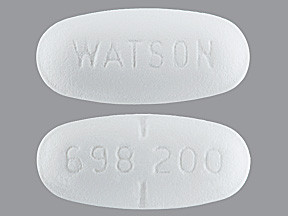
- color
- white
- shape
- oblong
- imprint
- 698 200, WATSON

- color
- white
- shape
- oblong
- imprint
- 698 200, WATSON
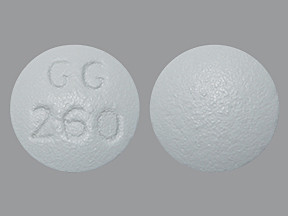
- color
- off-white
- shape
- round
- imprint
- GG 260

- color
- off-white
- shape
- round
- imprint
- GG 260
Reviews
Faq for HYDROXYCHLOROQUINE - ORAL
Hydroxychloroquine is an oral medication that is mainly used to treat malaria or certain autoimmune diseases like rheumatoid arthritis and lupus.
Hydroxychloroquine works by preventing the growth and spread of parasites in the body that cause malaria. It also helps to suppress the immune system, reducing the inflammation associated with autoimmune diseases.
Common side effects of hydroxychloroquine include nausea, upset stomach, diarrhea, headache, dizziness, and skin rash. It is important to consult a healthcare professional if these side effects become severe or persistent.
There is ongoing research investigating the potential use of hydroxychloroquine in the prevention or treatment of COVID-19. However, it is not currently approved by the FDA for this purpose, and the efficacy and safety for COVID-19 are still uncertain.
Yes, hydroxychloroquine can interact with certain medications, including other antimalarial drugs, antacids, diabetes medications, and certain antibiotics. It is important to inform your healthcare provider about all the medications you are taking to avoid any potential interactions.
The time taken for hydroxychloroquine to work can vary depending on the condition being treated. In malaria, it may take several days to a few weeks to see full effectiveness. In autoimmune diseases like rheumatoid arthritis or lupus, it may take several weeks or even months to experience significant improvement.
Hydroxychloroquine is generally considered safe for use during pregnancy, but it is important to discuss with a healthcare professional to weigh the potential risks and benefits. It is excreted in breast milk, but usually in low amounts, so it can typically be used while breastfeeding under medical supervision.
If you miss a dose of hydroxychloroquine, take it as soon as you remember. However, if it is close to the time for your next scheduled dose, skip the missed dose and resume your regular dosing schedule. Do not double the dose to make up for the missed one.
It is generally recommended to gradually reduce the dose of hydroxychloroquine when discontinuing treatment, especially if it has been taken for an extended period. Suddenly stopping the medication may cause a flare-up of symptoms or a recurrence of the condition being treated.
Disclaimer
IMPORTANT: HOW TO USE THIS INFORMATION: This is a summary and does NOT have all possible information about this product. This information does not assure that this product is safe, effective, or appropriate for you. This information is not individual medical advice and does not substitute for the advice of your health care professional. Always ask your health care professional for complete information about this product and your specific health needs.
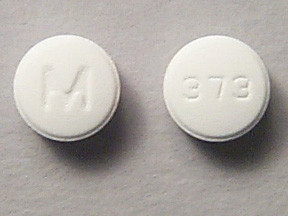
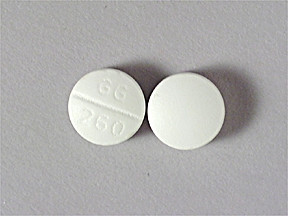
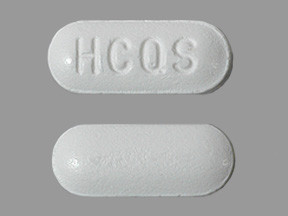
No Reviews Yet